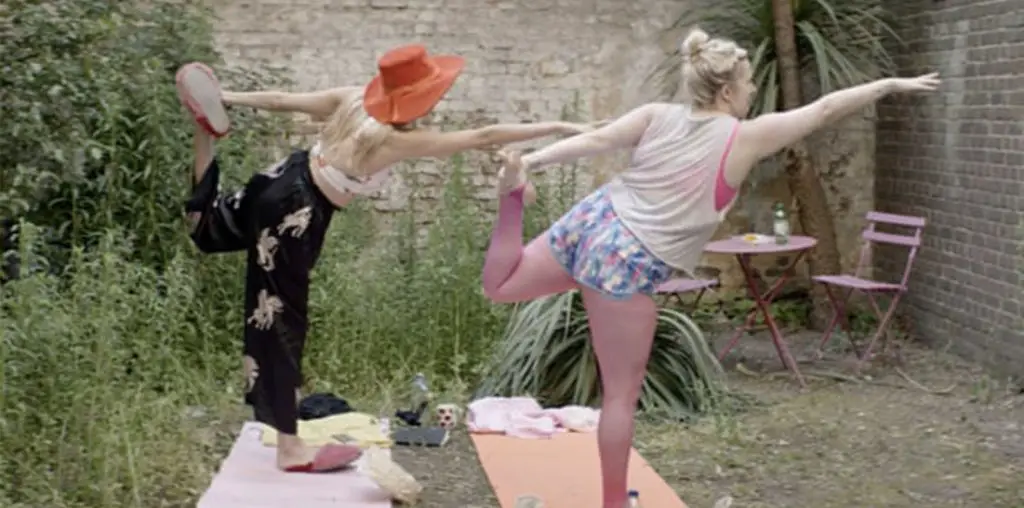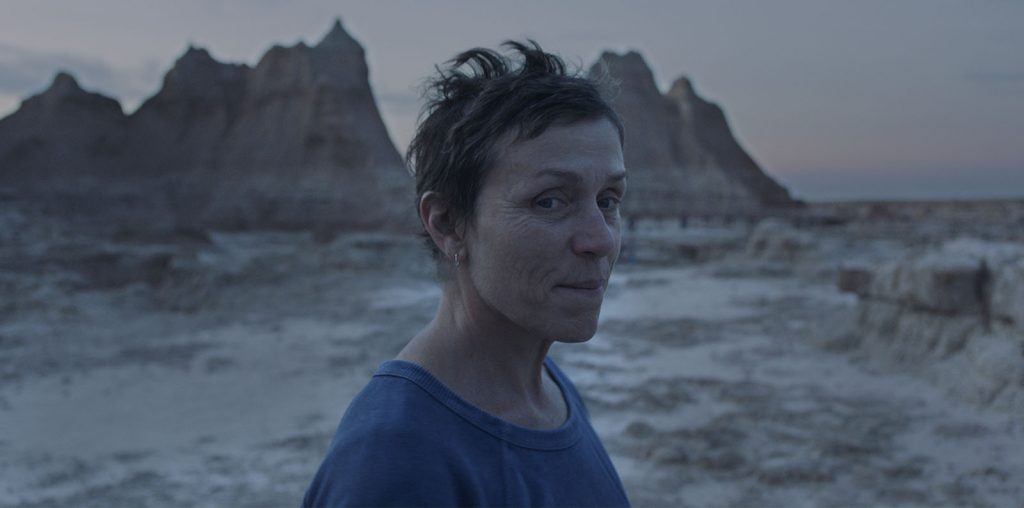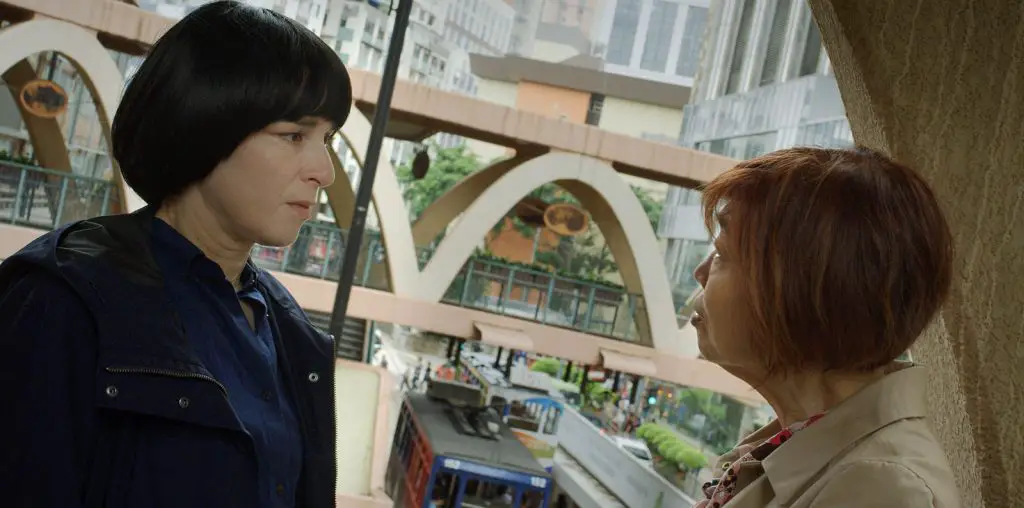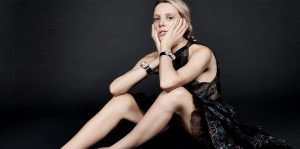
Your son is in the movie, and he is so cute. I thought he was adorable. He is your son, but you’re also directing a child—which is sometimes hard territory. How did you accomplish that, and what tips would you give about directing children?
For us, it was a real family production. My husband, Robert Montgomery, produced the film with us. So I think that made it easier. Having him on set, it felt like a relaxed environment. Because the crew was so small, it didn’t feel so intimidating. Making low budget films, you’re working in smaller environments, and you can’t have as many people around because we were shooting in a tiny studio flat. I think we were very mindful that it was just with the smallest crew for the shortest amount of time you could do it when we did shoot him. When you’re making a film, it consumes you and becomes your whole life, so actually, it was quite nice having him there. We were able to be with him and fit him in. We know him, and we knew when he wasn’t able to do something. We were like, “no, let’s do this later.” So I think maybe having a flexible schedule is better with children, so if you can put that into a production, I would definitely, definitely recommend it.
You worked with a lot of people you know very well, or they’re your family. Do you think that helped this particular film become more effective? Also, how did you build this team originally?
It was very much early on that we decided that we wanted to use non-actors playing over-the-top versions of themselves, encompassing their own habitual ways into the character. Then we had more character actors come in and counterbalance that. Because I think London is such an eclectic place, and I think it adds another layer to the world of these people. For instance, we had Bruno Wizard; he was actually in a punk band called The Homosexuals. He’s such a character already that it was just inspiring to work with somebody who could already put a certain tone on a character. You probably wouldn’t be able to find that with regular casting. I love films like Jim Jarmusch’s Coffee and Cigarettes, where you have musicians like Iggy Pop and Tom Waits playing ridiculous versions of themselves, and then you have Cate Blanchett there to go back into the narrative fiction. I think it was very much trying to piece together enough life into the film to make it feel real.
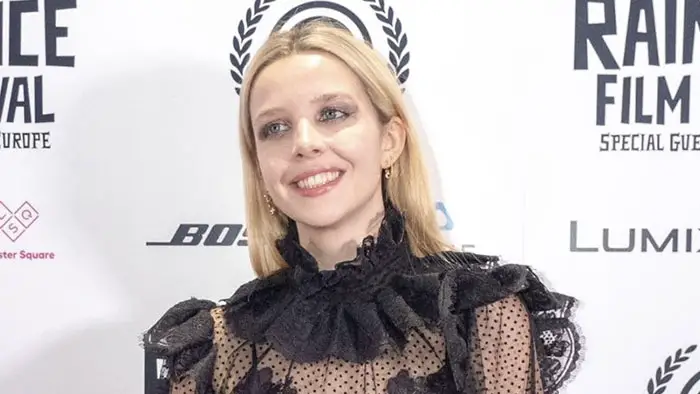
“…it’s very hard to make way for yourself and to find the people who understand you early on in your career…”
Is the film a dramatization of how you felt when you were starting your poetry career?
The opening scene is definitely…you know it’s very hard to make way for yourself and find the people who understand you early on in your career. That opening scene is definitely an homage to-yeah-I guess my early days of poetry. Hopefully, people will be able to relate to that scene because it is daunting early on to try to find a way to get your work out there and a way to feel empowered by what you’re trying to say and to find your voice. So, yeah, there are definitely remnants of the early days. Trying to get published and find the right community who understood what I was trying to say.
Did you find that when you were originally trying to get your book published that being an actor or being in the public eye helped you? Because maybe actors aren’t taken as seriously.
The thing is, I feel like my poetry is sort of weird. When I write, I don’t think about anything or anyone, but I think for a long time, I’ve tried to put poetry in unexpected places in order to put it into spaces, which hopefully new people will come to. So, I think maybe that’s been helpful with poetry, but I’d say the work hasn’t really changed. I don’t know…that’s a good question. It’s a good question. Probably, I don’t know.
It’s interesting when people do a lot of things, so I like to find out what I can from people who pursue more than one artistic endeavor.
I think putting it in unexpected places and trying to find ways to bring people to it and surprise them. Because for a long time, I’ve been trying to explain that poetry is for everyone, and it’s not an elitist art form. Everyone has poetry inside of them. It’s the profound language we all go to in times of despair and tragedy and woe, so I think it’s putting that message out there in as many mediums as I have access to is something I’ve tried to do.
